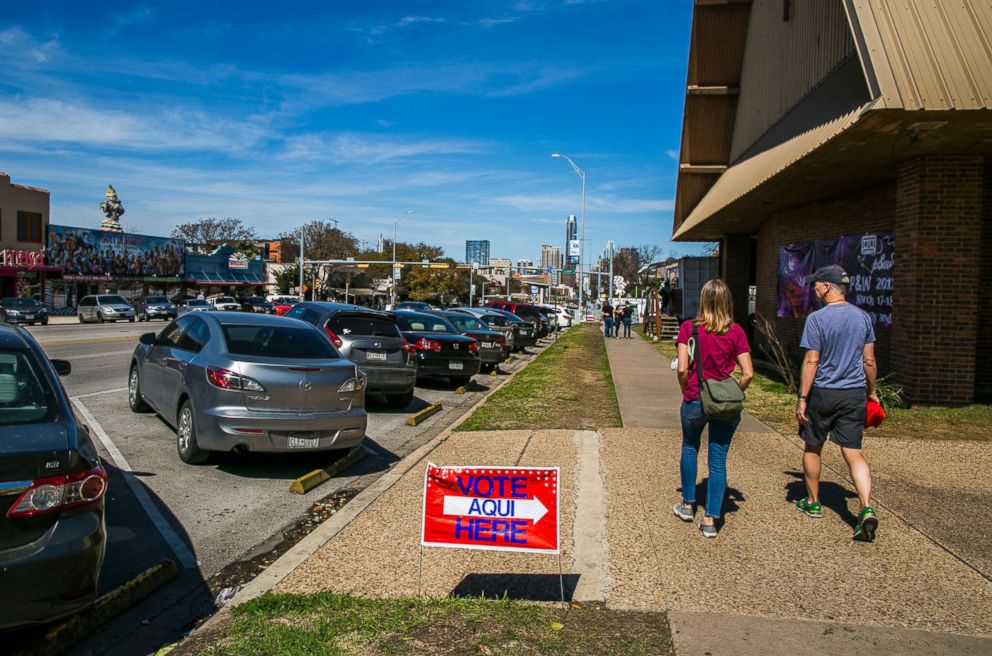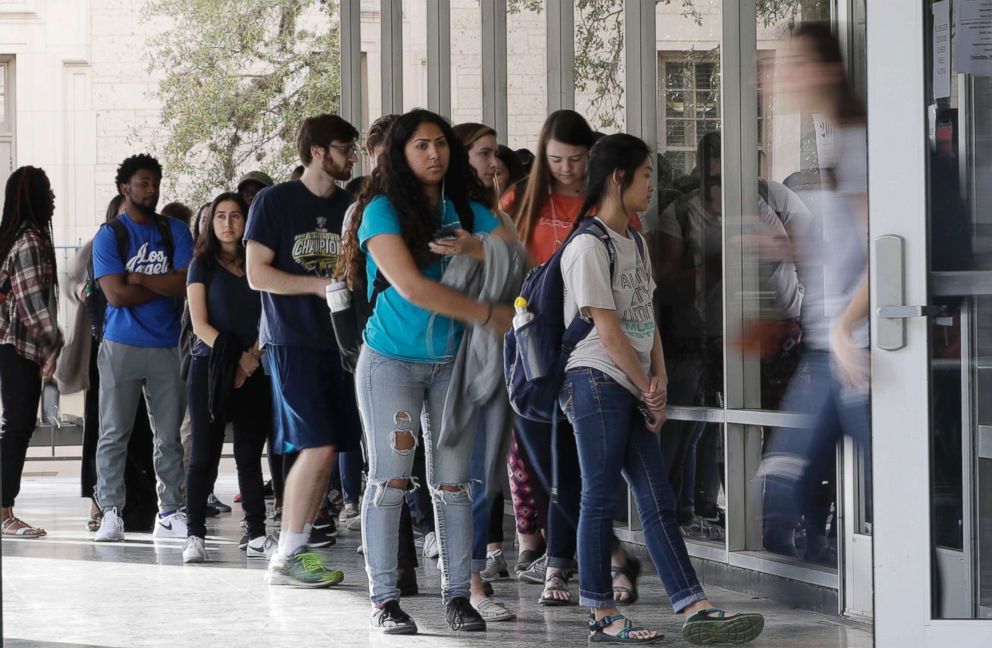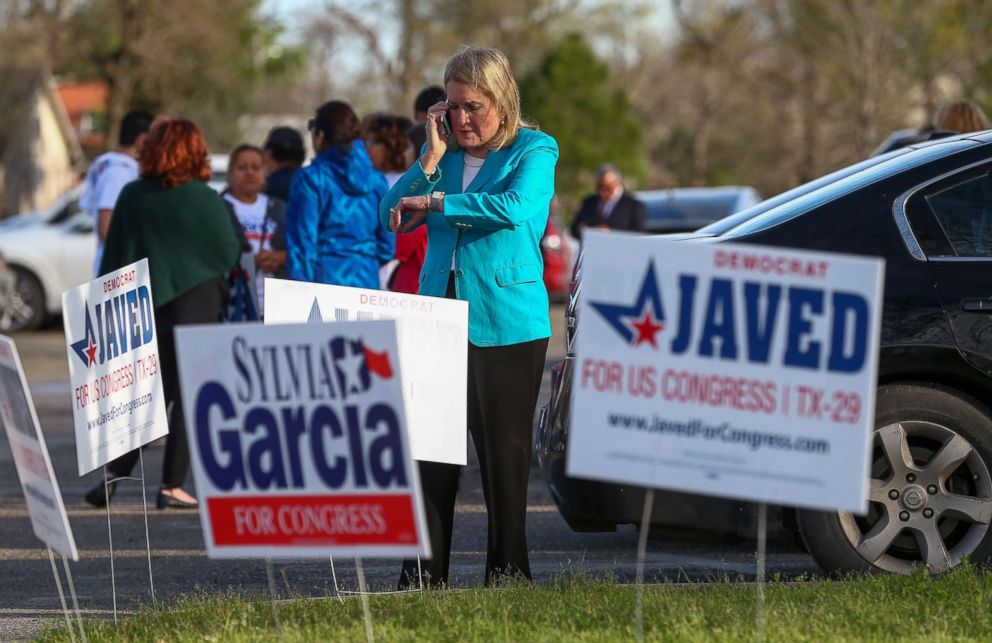Texas primary results leave Democrats in limbo
The biggest race for Democrats went to a runoff, setting up months of conflict.
The first national test of the Democrats’ surge of voter energy and their ability to influence the November election came to a head in Texas on Tuesday.
The biggest race of the night for the party goes to a runoff, setting up months of conflict between the establishment and its progressive wing and leading to questions about whether or not the Democratic Congressional Campaign Committee should have publicly interfered in the contest.
The campaign committee – which usually only attacks Republicans – criticized Laura Moser for an essay she wrote in 2014 that appeared to criticize life in Texas. Moser received a surge of national attention after the DCCC’s interference.
She and Lizzie Pannill Fletcher, who has been endorsed by EMILY’s List, proceed to the May 22nd runoff for the right to take on GOP incumbent Rep. John Culberson in November. The party will need to decide what role it plays in this contest.
Culberson's district, which was won by Hillary Clinton in 2016, is seen by political observers as one Democrats need to win in their quest to flip 24 seats in order to retake control of the House of Representatives.
The party was hopeful results in Texas would indicate a blue wave was coming their way this fall but, with several contests yet to be called, it's too early to say what happened in the Lone Star state means for the general election.

The National Republican Campaign Committee put out a statement mocking Democrats for their move and referenced the party's push for Clinton over Bernie Sanders in 2016.
"I guess the DCCC can't rig a primary as well as their counterparts at the DNC," NRCC communications director Matt Gorman said.
As of 12:45 a.m. ET, several Democratic primary races remained too close to call, but indications are that two other House races closely watched by Democrats will proceed to runoffs after no one candidate garnered a 50 percent majority.
In the 23rd Congressional District and the 32nd Congressional District, both of which Clinton carried in 2016, it was unclear which two candidates would advance to the May 22 runoffs.
Meanwhile, some 16 congressional races — 10 Democratic primaries and six GOP primaries — appear headed to runoffs, according to an ABC News count.
The Texas Democratic gubernatorial primary will also head to a runoff between Lupe Valdez and Andrew White.
Final voting numbers also were not available in the early hours of Wednesday morning. Throughout the 11 days of early voting in the state, Democrats cast at least 44,000 more ballots than Republicans in 15 largest counties.
Both parties will analyze the final turnout numbers for indications of how motivated their respective bases are to come out and vote in November.

Besides the battle to retake the House, Democrats are heavily invested in the Senate race, where they are touting Rep. Beto O’Rourke as their answer to taking out conservative stalwart Sen. Ted Cruz.
Both men were unchallenged in their primary contests and Cruz came out strong against his opponent after the Associated Press called the race for each of candidate.
The freshman senator put out a statement blasting O'Rourke as a "left-wing, liberal Democrat" who "is running as a vocal proponent of amnesty and open borders."
In addition to hitting the three-term congressman on immigration, which is huge issue in Texas, Cruz also criticized O'Rourke for not supporting second amendment rights, another important issue in the gun-friendly state.
"Congressman O'Rourke is a vocal proponent of gun control and restricting the Second Amendment rights of law abiding citizens. That is a policy position embraced by Chuck Schumer and Elizabeth Warren, but it’s not a position that reflects the values of Texans. Texans want to see violent criminals prosecuted and incarcerated, but at the same time, Texans want to see our fundamental rights, including our individual right to keep and bear arms, protected," he said in the statement.
The Cruz campaign also released a radio ad that criticized O’Rourke, whose birth name is Robert Francis, for going by “Beto,” which has Latino roots.
The ad, set to the tune of Alabama’s “If You’re Gonna Play in Texas,” includes the lyrics:
"Liberal Robert wanted to fit in.So he changed his name to Beto.And hid it with a grin."
The early attacks were seen by political observers as a sign that Cruz is worried about his opponent, even though a Democrat hasn't won statewide in Texas since 1994.
O’Rourke outraised Cruz in fundraising by more than $1.5 million since January, according to FEC data. Since the beginning of the year, O'Rourke has raised nearly $2.6 million to Cruz’s $895,276.
He tweeted about his win that his campaign was "going to do this the right way."
In other interesting races, Texas is set to elect its first female Latina members of Congress in November.
Former county judge Veronica Escobar won the Democratic primary in the 16th Congressional District to succeed O’Rourke, according to an AP projection.
If she wins the general election in November, Escobar would be one the first Hispanic women from Texas ever elected to Congress.
State Sen. Sylvia Garcia captured the Democratic nomination in the 29th Congressional District later in the night to succeed retiring Rep. Gene Green.
Another Latina, Jana Lynne Sanchez, will be competing with Ruby Faye Woolridge in the Democratic runoff in the 6th Congressional District. If Sanchez were to win both the runoff and the general election in November in the bid to replace retiring Rep. Joe Barton in Congress, it could mean Texas may end up sending three Hispanic women to Congress in 2018.
More than 50 women ran for Congress this year in the Lone Star State. More than a dozen congressional districts in the state will likely have a female candidate on the ballot this November.

Finally, President Donald Trump had a good night with a perfect win record in the GOP contests.
All the Republican candidates he tweeted about will win their primaries with enough of a vote to avoid a runoff on May 22, according to Texas election returns.
The president last week tweeted his endorsement of Gov. Greg Abbott, Sen. Ted Cruz, Lt. Gov. Dan Patrick, Attorney General Ken Paxton, Land Commissioner George P. Bush, Agriculture Commissioner Sid Miller, Comptroller Glenn Hegar, and Railroad Commissioner Christi Craddick.
Bush, son of former Florida Gov. Jeb Bush, faced a tough GOP primary where there were questions as to whether he would garner the more than 50 percent necessary to advance to the general election. He managed to do that and is favored to win in November.
In the closing days of the campaign, he heavily touted Trump's endorsement of him.
ABC News' Rachel Scott, John Verhovek, and Soorin Kim contributed to this report.




